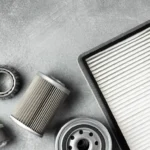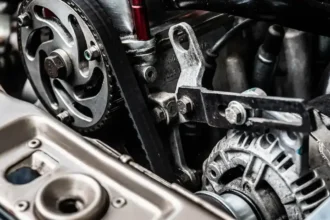car maintenance mistakes: Ever wondered if some of your car maintenance habits might be costing you more in the long run? Owning a car means taking care of it to ensure it runs smoothly, but many people unknowingly make simple yet costly mistakes. In this article, we’ll explore the top 10 car maintenance mistakes to avoid, saving you time, money, and unnecessary repairs.
The Top 10 Car Maintenance Mistakes to Avoid
1. Ignoring Regular Oil Changes
One of the most common car maintenance mistakes is skipping regular oil changes. Oil lubricates your engine, preventing friction and overheating. Over time, oil breaks down and becomes less effective, leading to engine wear. Ignoring oil changes can lead to costly engine repairs or even engine failure.
How Often Should You Change Your Oil?
- Check your owner’s manual, but most cars need an oil change every 5,000 to 7,500 miles.
List: Signs You Need an Oil Change
- Dark or dirty oil
- Engine knocking or rumbling
- Oil change light on the dashboard
2. Neglecting Tire Rotation
Tire rotation ensures even wear on your tires, helping them last longer. Many drivers overlook this simple maintenance task, leading to uneven wear and reducing the lifespan of their tires. Uneven tires can also affect your car’s handling and fuel efficiency.
When Should You Rotate Your Tires?
- Every 6,000 to 8,000 miles, or as recommended by your vehicle manufacturer.
3. Forgetting to Check Fluid Levels
Your car relies on various fluids, including coolant, brake fluid, transmission fluid, and power steering fluid, to function properly. Failing to check and top off these fluids can lead to overheating, brake failure, and transmission issues.
Recommended Fluid Check Intervals:

| Fluid Type | Check Interval |
|---|---|
| Engine Oil | Every oil change |
| Coolant | Every 30,000 miles |
| Brake Fluid | Every 20,000 miles |
| Transmission Fluid | Every 30,000-60,000 miles |
| Power Steering Fluid | Every 2 years |
4. Overlooking Brake Maintenance
Brakes are one of the most critical safety components of your vehicle. Ignoring brake maintenance can lead to worn-out brake pads or damaged rotors, compromising your ability to stop quickly in an emergency.
Signs You Need Brake Service
- Squeaking or grinding noises
- A spongy brake pedal
- Vibrations when braking
5. Not Replacing Air Filters
A dirty air filter can reduce engine efficiency, leading to poor fuel economy and sluggish performance. Replacing your air filter regularly helps your engine “breathe” properly, ensuring optimal performance.
How Often Should You Replace the Air Filter?
- Typically every 12,000 to 15,000 miles, but it depends on your driving conditions.
6. Ignoring Dashboard Warning Lights
Many drivers tend to ignore dashboard warning lights, assuming they can deal with the problem later. However, those lights are there for a reason, and ignoring them can lead to expensive repairs.
Common Dashboard Warning Lights to Watch Out For:
- Check engine light
- Oil pressure light
- Brake system light
- Battery warning light
7. Failing to Maintain Tire Pressure
Under-inflated or over-inflated tires can lead to poor fuel efficiency, uneven tire wear, and reduced handling. Regularly checking and maintaining the correct tire pressure can prevent these issues.
How Often Should You Check Tire Pressure?
- Check at least once a month and before long trips.
8. Skipping Scheduled Maintenance
Your car’s manufacturer provides a maintenance schedule for a reason. Skipping scheduled maintenance can result in minor issues turning into major, costly problems down the road.
Common Scheduled Maintenance Tasks:
- Oil and filter changes
- Fluid replacements
- Belt and hose inspections
- Tire rotations
9. Using Low-Quality Replacement Parts
When replacing parts, it’s tempting to go for the cheapest option. However, using low-quality or incorrect parts can lead to reduced performance or even damage to other components. Always use high-quality or OEM (Original Equipment Manufacturer) parts for the best results.
10. Overlooking Battery Maintenance
Your car’s battery plays a vital role in starting the engine and powering electrical systems. Ignoring battery maintenance can leave you stranded with a dead battery. Checking your battery terminals for corrosion and ensuring a good charge level can extend its life.
How Long Do Car Batteries Last?
- Most car batteries last between 3 to 5 years.
Conclusion
Avoiding these common car maintenance mistakes can save you from costly repairs and help extend the life of your vehicle. Regular oil changes, tire rotations, brake checks, and fluid level monitoring are just a few simple ways to ensure your car runs smoothly for years to come. Keep an eye on warning lights, follow your manufacturer’s maintenance schedule, and invest in quality parts to keep your car in top shape.
By staying on top of your car maintenance, you’ll not only avoid costly repairs but also enjoy a safer and more reliable driving experience.








